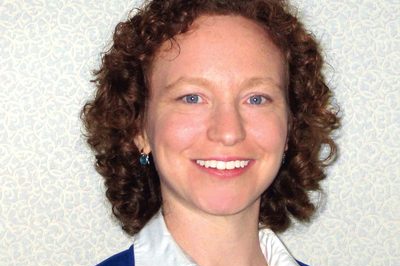Back-to-school can be fraught with tension for many parents, as we realize our children’s shoes are too small, they need new backpacks and, for reasons passing understanding, a perfectly working combination lock isn’t cool enough this year.
For LGBT parents, there is an additional concern about how our children’s new teachers and classmates will react to knowing our kids have LGBT moms or dads. Do you approach teachers and school administrators beforehand to inform them about your family and detect any potential problems?
My take on this dilemma? It is a very personal matter. If you think it will help minimize potential problems, by all means do it. If you think it will focus the teachers too much on your family structure and prevent them from viewing your children as whole, unique individuals, then you might opt for a softer approach. One way (if you are partnered) is to have both parents simply show up at orientation or the first day of school and introduce yourselves as Johnny or Janie’s parents.
Regardless of the approach you take, it never hurts to be prepared, either to help allies eager to be inclusive or to take action against bias and bullies. Here are some useful resources.
HRC’s “An Introduction to Welcoming Schools” guide is aimed at helping elementary-school administrators, teachers, parents and guardians address issues of family diversity, gender stereotyping and bullying (www.welcomingschools.org).
PFLAG’s Cultivating Respect program has materials for making schools safer, reducing bullying and providing comprehensive health education (community.pflag.org/Page.aspx?pid=1011).
GLSEN has safe-schools materials for both educators and students, including information on starting gay-straight alliances (www.glsen.org/cgi-bin/iowa/all/tools/index.html).
The Gay-Straight Alliance Network has materials for starting or sustaining a GSA, as well as the guide “Beyond the Binary: Making Schools Safe for Transgender Youth” (www.gsanetwork.org).
The National Center for Lesbian Rights has additional safe-schools information, including “Harassment & Discrimination: A Legal Overview,” which summarizes federal and state provisions (www.nclrights.org/site/PageServer?pagename=issue_youth_docsDownloads#schools).
COLAGE has tips for making classrooms safer (www.colage.org/resources/safe_classrooms.htm) and on making GSAs inclusive of youth with LGBT parents. (www.colage.org/resources/gsa.htm).
The Gay & Lesbian Alliance Against Defamation has information for LGBT students and allies (www.glaad.org/Page.aspx?pid=475).
The American Library Association’s Rainbow List offers LGBT-inclusive children’s and young-adult books chosen by librarians for quality and content (rainbowlist.wordpress.com).
Groundspark, the organization of Academy Award-winning director Debra Chasnoff, has produced diversity-education films for various age groups, including “That’s a Family” and “It’s Elementary.” Also offered are curriculum guides for all the films, making them easy to incorporate into diversity and antibullying programs.
I would, however, urge parents who want to introduce LGBT-inclusive books or films into their children’s schools to think carefully about how best to do so. Sometimes, making them part of a broader curriculum initiative on families or diversity may be a more effective way of gaining buy-in than trying to present them as standalone media. Judge your own school and classroom, though, and the degree to which they have used such materials before.
The most important thing LGBT parents can do to prepare the way for our children at school, however, is to build a support network. Make connections not only with other LGBT parents (if there are any) but also with parents of other non-traditional families and those you think will be supportive. Volunteer if you can; show up at school functions when at all possible. Sometimes, becoming known as the family that brings the awesome double-chocolate brownies to the PTA meetings can do more to convince people that you are all right than any reading of “And Tango Makes Three.”
Dana Rudolph is the founder and publisher of Mombian (www.mombian.com), a blog and resource directory for LGBT parents.

